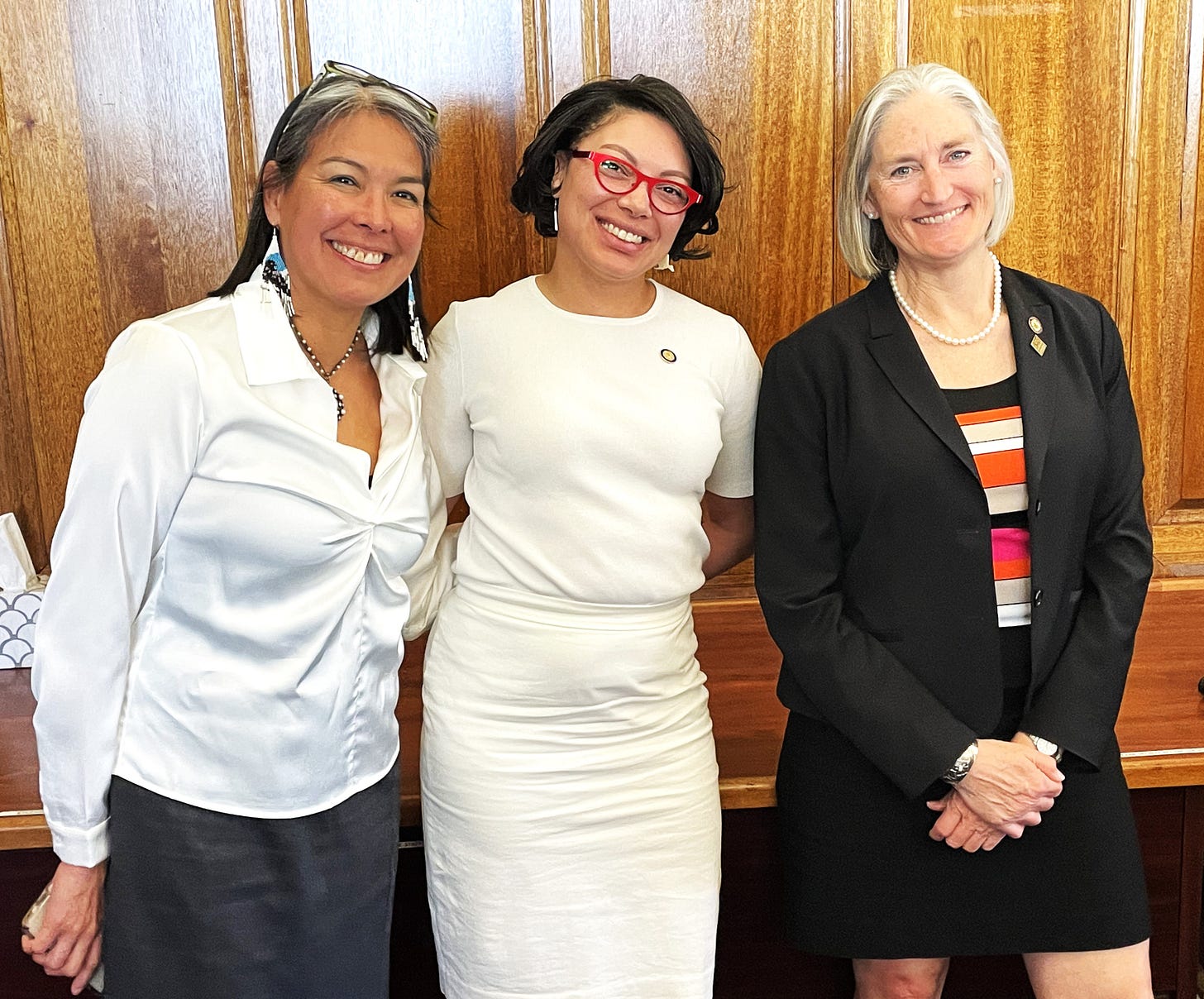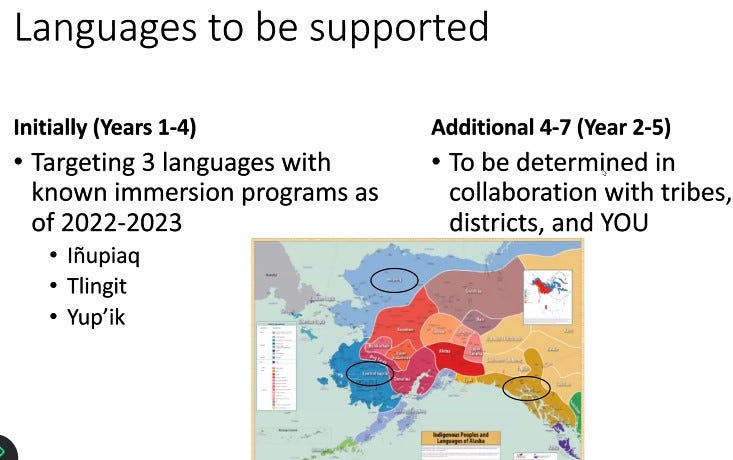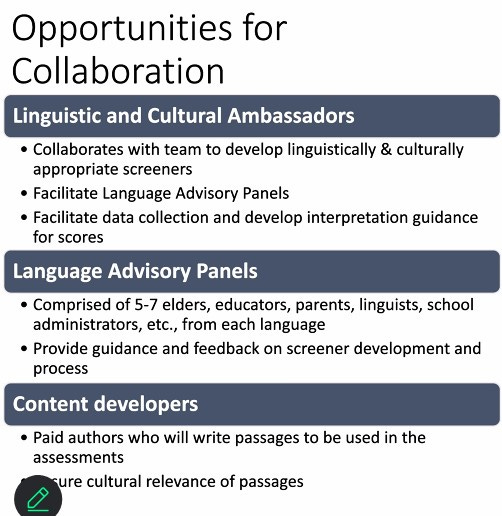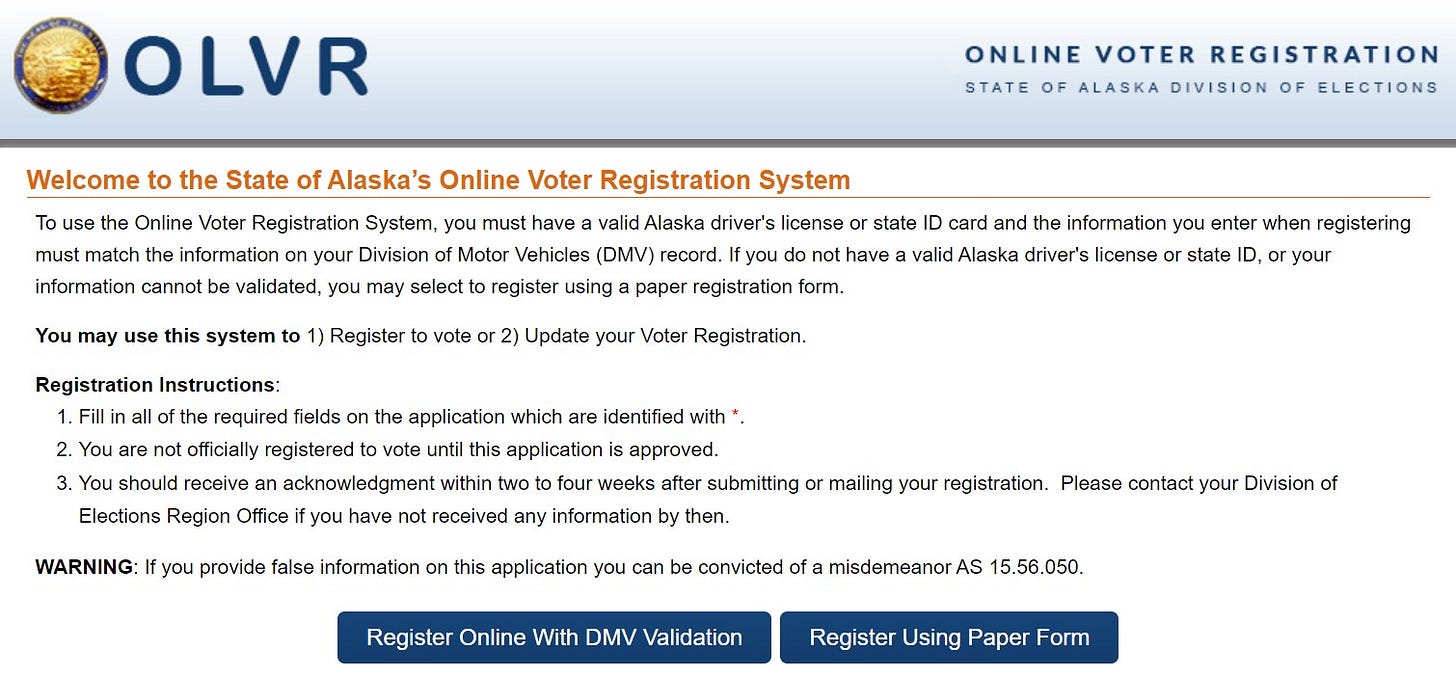The Alaska Children's Caucus meets Friday.
The deadline to register to vote in Alaska is October 6 and a project is underway to improve student proficiency in Alaska native languages. Plus, UA students can apply to be a legislative intern.
Earlier this year, I worked with my colleagues in the Alaska State House and Senate to restart a legislative policy caucus focused on improving outcomes for Alaskan families and children. By focusing on reducing the challenges and barriers to accessing high-quality early childcare and education, improving prenatal and postnatal health outcomes, and supporting Alaskan families, the Alaska Children’s Caucus seeks to bring together like-minded lawmakers willing to work together to support evidence-based bipartisan solutions.
Thank you to everyone who provided input and insight on our recent policy recommendations survey. At the next Alaska Children’s Caucus meeting, the committee will review the results from the survey and discuss the caucus’s next steps. Please join us this Friday (September 20) from 3:30 - 5:00 p.m. at the Anchorage Legislative Information Office (1500 W. Benson Blvd). You can also watch the meeting online by visiting AKLeg.gov or catch up with the recording whenever convenient.
For more information, please contact Mike Mason in my office at michael.mason@akleg.gov.

Alaska Children’s Caucus survey results are in!
Back in April, the Alaska Children’s Caucus members met to hear recommendations from organizations working in the early childcare and education sector.
Notable recommendations included:
Additional financial support for Alaska’s Child Advocacy Centers.
Expanded access to comprehensive afterschool and summer enrichment programs.
Legislation to require paid family leave in Alaska.
Expanded pre-K opportunities.
A funding increase for the successful Parents as Teachers program.
Invest $1.2 million in a statewide Imagination Library system.
Expanded access to youth mental health and wellness programming across the state.
In July, we asked for feedback from stakeholders, including members of the Alaska State Legislature and representatives from nonprofits serving children and families, on the presented recommendations. The survey included both policy recommendations and funding recommendations.
At the top of the policy survey results is a recommendation to expand access to youth mental health and wellness programs:
The top-ranked funding recommendation from the survey is to expand the successful childcare grant program. The program aims to use one-time funding appropriate by the Alaska State Legislature to increase childcare workers’ pay and stabilize childcare businesses statewide. As you will note in the below slide, the childcare grant program received $7.5 million in one-time funding in FY 2024 and in the current fiscal year, which is FY 2025. This Friday, you can learn more about the recommendations survey during the next Alaska Children’s Caucus meeting.
What’s your voting plan (and are you registered)? October 6 Voter Registration Deadline is quickly approaching.
“The vote is precious. It is the most powerful non-violent tool we have in a democratic society, and we must use it.” - Congressman John Lewis
The late John Lewis vehemently advocated that the vote given to citizens in the United States is a precious tool of our democracy and must be used. I wholeheartedly agree.
If you do not already have a voting plan for this November, I strongly encourage you to make one. The deadline to register to vote for our state elections and on-ballot initiatives is Sunday, October 6th.
If you would prefer to register in person, you can always register to vote at the Division of Elections office (2525 Gambell Street) in beautiful downtown.
For those who flirt with being extremely online, the easiest way to register to vote is through the Division of Elections online portal. Please note that you need a valid Alaska driver’s license or state ID card to use the secure Online Voter Registration System.
A project is underway to develop early literacy screening tools in Alaska Native languages.
A vital component of the Alaska Reads Act directed the Alaska Department of Education and Early Development (DEED) to develop or identify culturally responsive kindergarten through 3rd-grade reading screeners to help identify struggling students, students with dyslexia, and other reading deficiencies.
Recently, DEED held a work session announcing a five-year, $5 million project to develop early literacy screening tools in Alaska Native languages for kindergarten through grade 5 students. The big-picture goal of the project is to give all teachers the tools they need to serve Alaska Native communities using culturally appropriate and responsive resources.
“We are going to be working with Alaska Native partners throughout the process. We’re going to start with languages that have immersion programs in schools where students are learning to read and write in an Alaska Native language.” - Gina Biancarosa is a professor at the University of Oregon College of Education (Quoted in a University of Oregon press release)
The Literacy Screeners for Alaska Indigenous Languages (LSAIL) program is being developed by researchers at the University of Oregon in collaboration with Alaska Native communities and the Alaska Department of Education and Early Development. The development of literacy screeners was a provision written to the Alaska Reads Act, which required yearly screenings of K-3 students.

One of the best parts of the LSAIL program is that the program organizers will use Alaska Native-led advisory panels to inform their research, which will ultimately make the work more valid and meaningful. In addition to the use of advisory panels, the project organizers are hiring linguistic and cultural ambassadors and paying content developers to write passages for the assessments.
The University of Oregon website has more information about the Literacy Screeners for Alaska Indigenous Languages (LSAIL) program, and you can also watch an information session about the project on the University of Oregon’s YouTube page.

Ted Stevens Legislative Internship Program
Students at the University of Alaska who want to learn about politics and public policy are invited to apply for a Ted Stevens Legislative Internship. The program allows UA students to live and work in Juneau during the annual legislative session of the Alaska State Legislature.
The internship program is an excellent opportunity for students to earn college credits while gaining hands-on experience working in a legislative office. Interested students can apply online until November 1.








